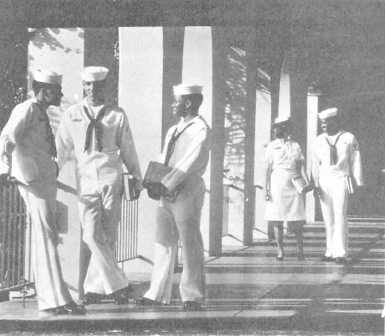| |
CHAPTER 5
EFFECTIVE COMMUNICATIONS
INTRODUCTION
The ability to communicate effectively is essential. Communicating is more than speaking; it involves
your entire presence. How you present yourself has a great deal of impact on your students’ interest and
desire to learn. As a Navy instructor, you must be able to communicate your knowledge, skills, and
experiences to the students in order to facilitate the learning process. How you communicate often has more
impact than the content of your message. The skills and techniques explained in this chapter will assist you in
strengthening your ability to communicate effectively.
EFFECTIVE COMMUNICATION PRINCIPLES
The purpose of effective communications in a training environment is to ensure students accurately
understand the material presented by the instructor. There are basically two principles you need to
understand that have to do with communicating effectively: (1) the identification and removal of barriers and
(2) the communication process itself.
BARRIERS TO EFFECTIVE COMMUNICATION
The existence of certain barriers
increases
the
potential
for
poor
communication. By being aware of these
barriers, you can reduce them and enhance
the clear understanding of your students.
Lack of Common Core Experience
One barrier is the lack of common core
experience. You are unlikely to find any
group in which students have the same
common core experience. For example, if you
say that a kiwi tastes like a kumquat,
students who have tasted one would have
the experience to make the proper
relationship.
32
|

